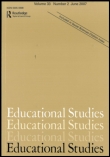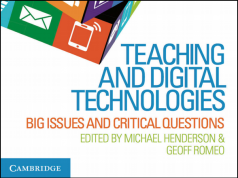
Nicola is an Associate Dean (Research) and Associate Professor of Digital Technologies in the School of Education at Edith Cowan University.
Nicola researches the intersections of sociology, technology and education within both social and formal settings. She utilises a range of critical theories to problematise and address interesting issues across various disciplines and fields.
Nicola is known as a successful and supportive supervisor enabling the completion of five masters by research and 12 PhD students since beginning as an academic in 2007. With fellow researchers, Nicola has obtained almost $1 million AUD of external competitive funding during her career.
Books that Nicola has authored include ‘The multiplicities of internet addiction’ (2009), ‘Publishing from your PhD’ (2011), ‘Everyday schooling in the digital age: High school, high tech?’ (with Selwyn, Nemorin & Bulfin, 2018). Nicola has also co-edited ‘Educational researchers and the regional university’ (with Green & Plowright, 2019), ‘Critical perspectives on technology and education’ (with Bulfin & Bigum, 2015) and ‘Children’s images of identity’ (with Brown, 2015).
My research is focused on the pedagogies associated with Internet use, social media within informal and formal settings, as well as what appears to be Internet ‘over-use’. Topics I have written about include the ‘performance of school’, the ‘misrecognition of learning’, ‘pedagogies of informal learning’, the ‘links between technological expertise and social media’, and ‘legitimate learning spaces’. Learning that occurs within informal settings is under-researched and I believe there is value and innovation in acknowledging the legitimacy of individuals’ pursuits of knowledge, and mapping practices to curriculum. My research is concerned with investigating current techno-cultural contexts and their nexus with learning and expertise.
While my research broadly fits in the area of digital technology and education, I am critical of the notion that ‘technology is better’. I believe quality teaching can stand alone without technology, but digital resources can provide opportunities not available without technologies. I am interested in the ways learning shapes technologies (and vice versa) and how technologies shape society (and vice versa).







